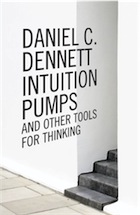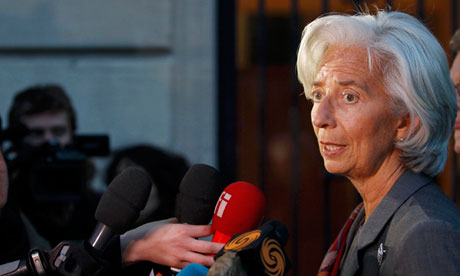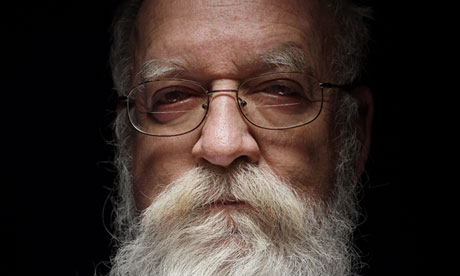1 USE YOUR MISTAKES
We have all heard the forlorn refrain: "Well, it seemed like a good idea at the time!" This phrase has come to stand for the rueful reflection of an idiot, a sign of stupidity, but in fact we should appreciate it as a pillar of wisdom. Any being, any agent, who can truly say: "Well, it seemed like a good idea at the time!" is standing on the threshold of brilliance. We human beings pride ourselves on our intelligence, and one of its hallmarks is that we can remember our previous thinking and reflect on it – on how it seemed, on why it was tempting in the first place and then about what went wrong.
- Intuition Pumps and Other Tools for Thinking
- by Daniel C Dennett

-
- Tell us what you think: Rate the book
I know of no evidence to suggest that any other species on the planet can actually think this thought. If they could, they would be almost as smart as we are. So when you make a mistake, you should learn to take a deep breath, grit your teeth and then examine your own recollections of the mistake as ruthlessly and as dispassionately as you can manage. It's not easy. The natural human reaction to making a mistake is embarrassment and anger (we are never angrier than when we are angry at ourselves) and you have to work hard to overcome these emotional reactions.
Try to acquire the weird practice of savouring your mistakes, delighting in uncovering the strange quirks that led you astray. Then, once you have sucked out all the goodness to be gained from having made them, you can cheerfully set them behind you and go on to the next big opportunity. But that is not enough: you should actively seek out opportunities just so you can then recover from them.
In science, you make your mistakes in public. You show them off so that everybody can learn from them. This way, you get the benefit of everybody else's experience, and not just your own idiosyncratic path through the space of mistakes. (Physicist Wolfgang Pauli famously expressed his contempt for the work of a colleague as "not even wrong". A clear falsehood shared with critics is better than vague mush.)
This, by the way, is another reason why we humans are so much smarter than every other species. It is not so much that our brains are bigger or more powerful, or even that we have the knack of reflecting on our own past errors, but that we share the benefits our individual brains have won by their individual histories of trial and error.
I am amazed at how many really smart people don't understand that you can make big mistakes in public and emerge none the worse for it. I know distinguished researchers who will go to preposterous lengths to avoid having to acknowledge that they were wrong about something. Actually, people love it when somebody admits to making a mistake. All kinds of people love pointing out mistakes.
Generous-spirited people appreciate your giving them the opportunity to help, and acknowledging it when they succeed in helping you; mean-spirited people enjoy showing you up. Let them! Either way we all win.
2 RESPECT YOUR OPPONENT
Just how charitable are you supposed to be when criticising the views of an opponent? If there are obvious contradictions in the opponent's case, then you should point them out, forcefully. If there are somewhat hidden contradictions, you should carefully expose them to view – and then dump on them. But the search for hidden contradictions often crosses the line into nitpicking, sea-lawyering and outright parody. The thrill of the chase and the conviction that your opponent has to be harbouring a confusion somewhere encourages uncharitable interpretation, which gives you an easy target to attack.
But such easy targets are typically irrelevant to the real issues at stake and simply waste everybody's time and patience, even if they give amusement to your supporters. The best antidote I know for this tendency to caricature one's opponent is a list of rules promulgated many years ago by social psychologist and game theorist Anatol Rapoport.
How to compose a successful critical commentary:
1. Attempt to re-express your target's position so clearly, vividly and fairly that your target says: "Thanks, I wish I'd thought of putting it that way."
2. List any points of agreement (especially if they are not matters of general or widespread agreement).
3. Mention anything you have learned from your target.
4. Only then are you permitted to say so much as a word of rebuttal or criticism.
One immediate effect of following these rules is that your targets will be a receptive audience for your criticism: you have already shown that you understand their positions as well as they do, and have demonstrated good judgment (you agree with them on some important matters and have even been persuaded by something they said). Following Rapoport's rules is always, for me, something of a struggle…
3 THE "SURELY" KLAXON
When you're reading or skimming argumentative essays, especially by philosophers, here is a quick trick that may save you much time and effort, especially in this age of simple searching by computer: look for "surely" in the document and check each occurrence. Not always, not even most of the time, but often the word "surely" is as good as a blinking light locating a weak point in the argument.
Why? Because it marks the very edge of what the author is actually sure about and hopes readers will also be sure about. (If the author were really sure all the readers would agree, it wouldn't be worth mentioning.) Being at the edge, the author has had to make a judgment call about whether or not to attempt to demonstrate the point at issue, or provide evidence for it, and – because life is short – has decided in favour of bald assertion, with the presumably well-grounded anticipation of agreement. Just the sort of place to find an ill-examined "truism" that isn't true!
4 ANSWER RHETORICAL QUESTIONS
Just as you should keep a sharp eye out for "surely", you should develop a sensitivity for rhetorical questions in any argument or polemic. Why? Because, like the use of "surely", they represent an author's eagerness to take a short cut. A rhetorical question has a question mark at the end, but it is not meant to be answered. That is, the author doesn't bother waiting for you to answer since the answer is so obvious that you'd be embarrassed to say it!
Here is a good habit to develop: whenever you see a rhetorical question, try – silently, to yourself – to give it an unobvious answer. If you find a good one, surprise your interlocutor by answering the question. I remember a Peanuts cartoon from years ago that nicely illustrates the tactic. Charlie Brown had just asked, rhetorically: "Who's to say what is right and wrong here?" and Lucy responded, in the next panel: "I will."
5 EMPLOY OCCAM'S RAZOR
Attributed to William of Ockham (or Ooccam), a 14th-century English logician and philosopher, this thinking tool is actually a much older rule of thumb. A Latin name for it is lex parsimoniae, the law of parsimony. It is usually put into English as the maxim "Do not multiply entities beyond necessity".
The idea is straightforward: don't concoct a complicated, extravagant theory if you've got a simpler one (containing fewer ingredients, fewer entities) that handles the phenomenon just as well. If exposure to extremely cold air can account for all the symptoms of frostbite, don't postulate unobserved "snow germs" or "Arctic microbes". Kepler's laws explain the orbits of the planets; we have no need to hypothesise pilots guiding the planets from control panels hidden under the surface. This much is uncontroversial, but extensions of the principle have not always met with agreement.
One of the least impressive attempts to apply Occam's razor to a gnarly problem is the claim (and provoked counterclaims) that postulating a God as creator of the universe is simpler, more parsimonious, than the alternatives. How could postulating something supernatural and incomprehensible be parsimonious? It strikes me as the height of extravagance, but perhaps there are clever ways of rebutting that suggestion.
I don't want to argue about it; Occam's razor is, after all, just a rule of thumb, a frequently useful suggestion. The prospect of turning it into a metaphysical principle or fundamental requirement of rationality that could bear the weight of proving or disproving the existence of God in one fell swoop is simply ludicrous. It would be like trying to disprove a theorem of quantum mechanics by showing that it contradicted the axiom "Don't put all your eggs in one basket".
6 DON'T WASTE YOUR TIME ON RUBBISH
Sturgeon's law is usually expressed thus: 90% of everything is crap. So 90% of experiments in molecular biology, 90% of poetry, 90% of philosophy books, 90% of peer-reviewed articles in mathematics – and so forth – is crap. Is that true? Well, maybe it's an exaggeration, but let's agree that there is a lot of mediocre work done in every field. (Some curmudgeons say it's more like 99%, but let's not get into that game.)
A good moral to draw from this observation is that when you want to criticise a field, a genre, a discipline, an art form …don't waste your time and ours hooting at the crap! Go after the good stuff or leave it alone. This advice is often ignored by ideologues intent on destroying the reputation of analytic philosophy, sociology, cultural anthropology, macroeconomics, plastic surgery, improvisational theatre, television sitcoms, philosophical theology, massage therapy, you name it.
Let's stipulate at the outset that there is a great deal of deplorable, second-rate stuff out there, of all sorts. Now, in order not to waste your time and try our patience, make sure you concentrate on the best stuff you can find, the flagship examples extolled by the leaders of the field, the prize-winning entries, not the dregs. Notice that this is closely related to Rapoport's rules: unless you are a comedian whose main purpose is to make people laugh at ludicrous buffoonery, spare us the caricature.
7 BEWARE OF DEEPITIES
A deepity (a term coined by the daughter of my late friend, computer scientist Joseph Weizenbaum) is a proposition that seems both important and true – and profound – but that achieves this effect by being ambiguous. On one reading, it is manifestly false, but it would be earth-shaking if it were true; on the other reading, it is true but trivial. The unwary listener picks up the glimmer of truth from the second reading, and the devastating importance from the first reading, and thinks, Wow! That's a deepity.
Here is an example (better sit down: this is heavy stuff): Love is just a word.
Oh wow! Cosmic. Mind-blowing, right? Wrong. On one reading, it is manifestly false. I'm not sure what love is – maybe an emotion or emotional attachment, maybe an interpersonal relationship, maybe the highest state a human mind can achieve – but we all know it isn't a word. You can't find love in the dictionary!
We can bring out the other reading by availing ourselves of a convention philosophers care mightily about: when we talk about a word, we put it in quotation marks, thus: "love" is just a word. "Cheeseburger" is just a word. "Word" is just a word. But this isn't fair, you say. Whoever said that love is just a word meant something else, surely. No doubt, but they didn't say it.
Not all deepities are quite so easily analysed. Richard Dawkins recently alerted me to a fine deepity by Rowan Williams, the then archbishop of Canterbury, who described his faith as "a silent waiting on the truth, pure sitting and breathing in the presence of the question mark".
I leave the analysis of this as an exercise for you.




